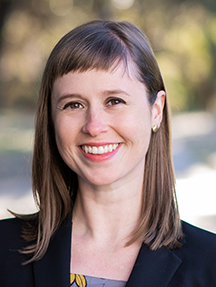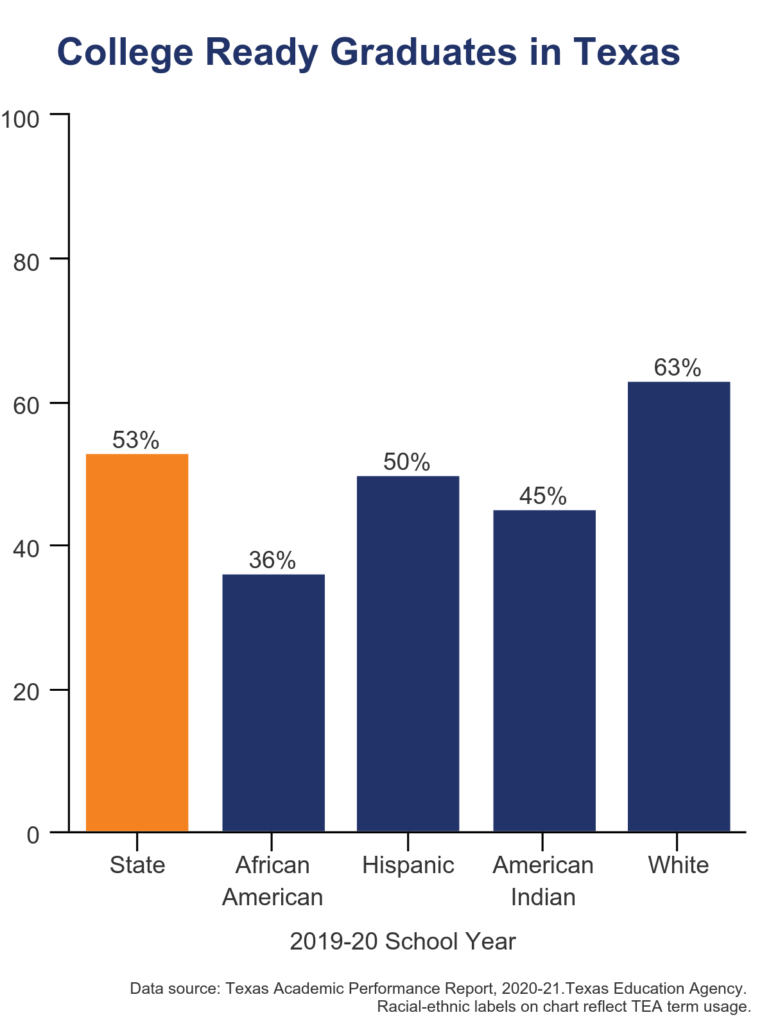

 • By Chloe Latham Sikes, Ph.D., Monica Obregon, & Darlissa Villanueva • IDRA Newsletter • May 2022 •
• By Chloe Latham Sikes, Ph.D., Monica Obregon, & Darlissa Villanueva • IDRA Newsletter • May 2022 •
The Texas Legislature convenes every other year, but Texas leaders and advocates make policies that affect schools and students all year long. Here we review recent updates to IDRA’s four policy priorities and opportunities to engage in upcoming policy changes.
Fair School Funding:
Keeping Public Money in Public
Schools
Public schools serve all students. They are publicly funded and publicly accountable. Yet, Texas Governor Greg Abbott declared this month that he supports private school vouchers, signaling action in the next legislative session in 2023 to direct public dollars away from public schools and toward private schools.
Publicly funded private school programs generally fall into three types: vouchers, education savings accounts, and scholarship tax credit programs. All three redirect public taxpayer dollars for education out of public schools and into private institutions. Out of the 50 states and Washington, D.C., 19 have scholarship tax credits, 16 have vouchers and six have education savings accounts (ECS, 2021). In the U.S. South, only Texas and Tennessee do not have any publicly funded private school programs.
Previous Texas legislative efforts to create voucher or similar programs have attempted to use students with special needs or from low-income households as an entry point to build support for vouchers with the thinly-veiled intent to later expand. These and other proposals historically fail because private programs do not adequately serve students, academically or financially. Private schools are not required to comply with federal special education protections under Individuals with Disabilities Education Act (IDEA), nor guarantee admission to students with varied special needs just because a family presents a voucher or similar scholarship (NCLD, 2017).
Moreover, the average private school tuition exceeds the value of publicly funded private school programs, often making them only accessible to wealthy families. In Texas, the average private school tuition rate is over $10,000 per year (Hanson, 2021), while base funding per pupil is $6,160 (TEA, 2022a).
Let us know how classroom censorship laws are affecting you!
At the same time, the loss of students from the public school system to private schools means public schools lose funding but do not have reduced costs (Education Law Center, 2021). This affects every public school student since public schools in Texas have never been fully funded. All students deserve high-quality education, and public funds for all should not be redirected to benefit a few at the expense of everyone else.
College Readiness & Access for All Students:
Creating a New Plan for Texas Higher Education
 All students deserve a high-quality education that prepares them for college and lifelong success. Texas depends on it. Yet a disparately low percentage of Black, Latino and Indigenous students graduate ready for college compared to their white peers and the state average (TEA, 2020).
All students deserve a high-quality education that prepares them for college and lifelong success. Texas depends on it. Yet a disparately low percentage of Black, Latino and Indigenous students graduate ready for college compared to their white peers and the state average (TEA, 2020).
Black students graduate college-ready at just over half the rate of white students (36.4% compared to 62.5%), and 17 percentage points below the statewide rate. Latino and Indigenous students graduate more than 10 percentage points below the rate for white students.
Postsecondary education will never be equitable if Texas students of color – the majority of the K-12 school population – are not prepared to access and excel in college. The Texas Higher Education Coordinating Board (THECB) recently released an updated strategic plan to address equity in postsecondary outcomes for Texas students. The Building a Talent Strong Texas plan replaces the previous 60X30TX plan that aimed to equip 60% of Texans between the ages of 25 to 34 years old with a postsecondary credential (four-year or two-year degree, certificate, etc.) by the year 2030 (THECB, 2020).
Progress toward the 60×30 goal lagged pre-pandemic, and college enrollment fell drastically since 2020 (THECB, 2021). The state especially struggled to meet goals for Black and Latino students, students from households with limited incomes, and males.
The new plan builds on past goals with additional strategies for both 25-34 and 35-65 year-olds to achieve a postsecondary credential by 2030, either through first-time postsecondary education or by returning to learn new career skills, or “re-skilling” and “up-skilling” (THECB, 2022).
IDRA is a part of Future Ready San Antonio, with over 85 non-profit organizations, companies, school districts, colleges and civic agencies that are committed to equity in college preparation for all students in Bexar County. Spearheaded by Up Partnership, the initiative launched recently with the goal of having 70% of high school graduates in a degree or credential program by 2030.
A strong K-12 educational foundation with advising and rigorous coursework prepares students to achieve whatever their goals are for college and beyond (Bojorquez, 2019). Advocates can engage in the interim state legislative hearings and in the next legislative session to ensure leaders address equitable college readiness across the education pipeline.
Excellent Educational Opportunities for Emergent Bilingual Students:
Addressing Teacher Shortages
Building pressures from the pandemic and longstanding stresses on teachers have culminated in widespread teacher turnover. Texas has chronic teacher shortages in bilingual education, special education and STEM. The Texas Education Agency (TEA) recently established a Teacher Vacancy Task Force whose recommendations to address shortages will inform policies in the next legislative session. But when the 28 task force members were first named, only two were teachers. After the outcry of a lack of equitable representation, TEA announced it would add more teachers (24 more). The Texas Legislative Education Equity Coalition (TLEEC), founded and co-convened by IDRA, issued a letter with recommendations for transparency in the task force’s work (IDRA, 2022).
Two new laws address the teacher shortage in bilingual education. House Bill 2256 created a new certification in bilingual special education, and Senate Bill 560 tasked TEA, THECB and Texas Workforce Commission to develop a strategic plan to improve and expand bilingual education (see Garcia, 2021 for more details). IDRA convened teachers, teacher educators and others to provide recommendations for the certification requirements that will have specialized training in differentiating students’ linguistic, cognitive, developmental and other abilities as it relates to their placement in any bilingual and/or special education programs.
Once established, the bilingual special education certification will prepare educators to support students’ full range of linguistic and developmental needs, and it will help address teacher shortages in both bilingual and special education.
The state strategic plan for bilingual education requires a strong teacher workforce to expand high-quality bilingual programs, including dual language immersion programs. As state agencies develop the plan, they will need to align strategies that consider teacher workforce needs, bolster educator preparation and certification programs, and cultivate a more bilingual and biliterate Texas.
TEA released the Texas Effective Dual Language Immersion Framework to guide districts as they initiate or expand their dual language programs (2021). The framework involves five levers for operating an effective dual language program that centers school leadership, family and community empowerment and supports staffing, program models, and pedagogical methods and materials.
Culturally-Sustaining Schools:
Combatting School Censorship to Promote Quality Curriculum
Culturally sustaining schools create positive and safe school climates for all students to receive high-quality educational opportunities and the support to succeed. But new Texas legislation censors teaching and classroom conversations on racial justice, gender inclusivity, and true accounts of history and current events. Despite these policies, educators, students and community members can still teach the truth and promote culturally sustaining schools (see IDRA’s guide to SB 3: Castillo, et al., 2022).
The Texas State Board of Education is reviewing social studies learning standards this year. IDRA encourages diverse representation in the state learning standards to promote truthful history and culturally sustaining instruction and pedagogies for students to succeed in schools (see IDRA’s testimony). Meeting notes and upcoming agendas are posted on the SBOE website. IDRA’s We All Belong – School Resource Hub has tools for teaching in a climate of classroom censorship.
Further, the Texas House and Senate are holding interim hearings in 2022 on the impact of school censorship legislation as they prepare for the next session (Paxton, 2022). Censorship legislation has led to book bans, sanctions against educators and canceled opportunities for students to participate in civic engagement programs for course credit (Latham Sikes, 2022). IDRA is seeking input on the impact of censorship laws from educators and community members.
Strong, culturally sustaining schools support a high-quality education for all students through truthful and affirming curricula, and social-emotional and restorative justice programs that keep students engaged in school. School censorship laws lower the accuracy, comprehensiveness and quality of education for students.
Resources
Bojorquez, H. (May 2019). School Counselors Express Concern About College and Career Advising in Texas. IDRA Newsletter.
Castillo, M., Craven, M., Gómez, I., & Latham Sikes, C. (February 2022). What Texas’ Classroom Censorship Law Means for Students and Schools: A Guide to SB 3. IDRA.
ECS. (March 2021). 50-State Comparison of Private School Choice. Education Commission of the States.
Education Law Center. (2021). Inequity in School Funding: Southern States Must Prioritize Fair Public School Spending. Education Law Center.
Garcia, A. (June-July 2021). Exciting Advances for Emergent Bilingual Students in Texas. IDRA Newsletter.
Hanson, M. (December 27, 2021). Average Cost of Private School. Education Data Initiative.
IDRA. (March 18, 2022). TLEEC Letter to the Texas Commissioner of Education on Greater Transparency and Representation on Teacher Vacancy Task Force. Texas Legislative Education Equity Coalition (TLEEC).
Latham Sikes, C. (February 2022). A Wolf in Sheep’s Clothing – The Attacks Against Equity through School Censorship and How Educators Can Still Teach the Truth. IDRA Newsletter.
NCLD. (2017). Vouchers, Education Savings Accounts, and Tax Incentive Programs: Implications and Considerations for Students with Disabilities. National Center for Learning Disabilities.
Patrick, D. (2022). 2022 Interim Legislative Charges. Lieutenant Governor of Texas, President of the Senate.
Svitek, P. (May 10, 2022). Gov. Greg Abbott voices clear support for school voucher program. Texas Tribune.
TEA. (2020). Comprehensive Glossary, 2019-20 Texas Academic Performance Report. Texas Education Agency.
TEA. (2021). Texas Effective Dual Language Immersion Framework. Texas Education Agency.
TEA. (2022). Teacher Vacancy Task Force. Texas Education Agency.
TEA. (2022a). Statewide Summary of Finances 2021-2022. Texas Education Agency.
THECB. (2020). 60x30TX Plan. Texas Higher Education Coordinating Board.
THECB. (2021). Preliminary Fall 2021 Texas Higher Ed Enrollment Data. Texas Higher Education Coordinating Board.
THECB. (2022). 2022-2030 Strategic Plan: Building a Talent Strong Texas. Texas Higher Education Coordinating Board.
Chloe Latham Sikes, Ph.D., is IDRA’s deputy director of policy. Comments and questions may be directed to her via e-mail at chloe.sikes@idra.org. Monica Obregon and Darlissa Villanueva served as IDRA research fellows in spring 2022.
[©2022, IDRA. This article originally appeared in the May 2022 IDRA Newsletter by the Intercultural Development Research Association. Permission to reproduce this article is granted provided the article is reprinted in its entirety and proper credit is given to IDRA and the author.]


